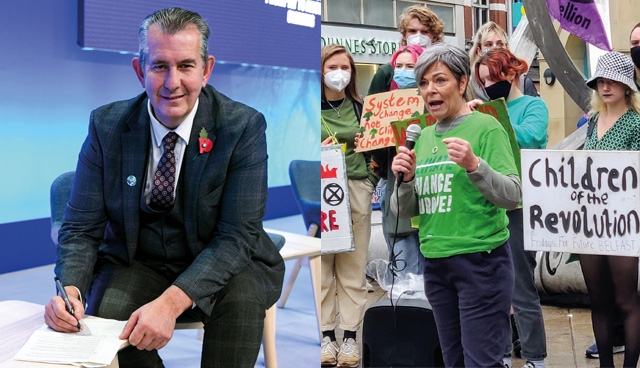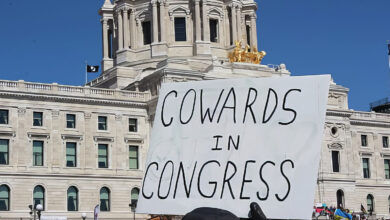The best climate act possible

Climate bills in Northern Ireland are a bit like buses. We wait 10 years for one and then two come along, writes Friends of the Earth Northern Ireland Director, James Orr.
Both are now in a race to the finish with Clare Bailey MLA, and the co-drivers from several other parties, still at the wheel of Bill No. 1.
Minister Poots still drives solo his Climate No. 2 bus. With its lack of ambition and sluggish start, the No 2 Bill seems powered by red diesel, instead of green hydrogen.
Despite the obvious embarrassment that Northern Ireland is the only country in these islands without any climate legislation, we have seen some progress in recent weeks with the Assembly’s AERA Committee, which is just about to wrap up its scrutiny of Bill No. 1. Our post-COP26 legacy must be accelerated passage of the strongest possible Climate Act in the next couple of months.
This is what I think should happen. I very much wish the public support and the energetic voices of young people at the November 2021 rallies in Northern Ireland, for a strong net zero climate bill, will be singing in the ears of the political leaders of the Assembly who have declared a climate emergency, with a majority still determined to pass a strong law.
I pray that it might just dawn on our political leaders that climate justice demands that per head of population we should not continue to act in a way where we think we have a right to more atmosphere than most other people in the world. We cannot continue to pollute the atmosphere beyond our fair share.
And as for the committee, take a bow for not being derailed by the two bills and showing a willingness to learn from other jurisdictions in these islands.
So, what are the learnings from our neighbours that make a strong Climate Act?
First of all, a net zero target. Personally, I would prefer a target in law much earlier than 2045 but parity of approach with our neighbours is also an important principle. We should not rest on our laurels knowing that others will do more than us. A common approach sets the pathway for all future planning and legally binding climate action plans for all departments. We need that end date in time to set the pace and the direction of travel. Anything less than 100 per cent target for the reduction of greenhouses gases will create a sacrifice zone in Northern Ireland.
Secondly, In Climate Bill No. 1, a just transition is proposed to be set in law. In all the smoke and mirrors about the impacts of the No. 1 bill on agriculture, it is the just transition principle in the No. 1 Bill that provides the legal architecture to save farming.
Readers should be shocked that this is absent from Minister for Agriculture’s Bill No. 2. Moreover, it appears the No. 1 Bill may be shifted to incorporate a just transition fund for agriculture, as it should for disadvantaged families who live in fuel poverty. The climate emergency is here and farmers should not be scare mongered into the fear of a strong Climate Bill.
The real fear for farmers should be the fear of no bill and the trauma and disruption of climate change itself.
The third key element is accountability and good governance. Climate acts do not set the detailed policies but set the framework for the department plans. Another vital element is the need for a future Departmental Climate Plan to be scrutinised by independent oversight. This guarantees the plans will be fair, can meet the overarching target and are robust enough withstand political turmoil. That means an Office of the Climate Commissioner for Northern Ireland.
So, what should happen? The best elements of Climate Bill No. 2, such as interim climate targets, should be incorporated into Bill No. 1 and just transition funds established in law. Let the strongest bill possible be agreed with cross party leadership as soon as possible embracing a prosperous, stable and fair post-carbon world.
All I wanted for Christmas was the best Climate Act possible. I’m prepared to wait though till Valentine’s Day, but no later. A strong net zero Climate Act is not just the ultimate test that we have come of age but the love letter the Assembly needs to send to the planet and the next generation.





